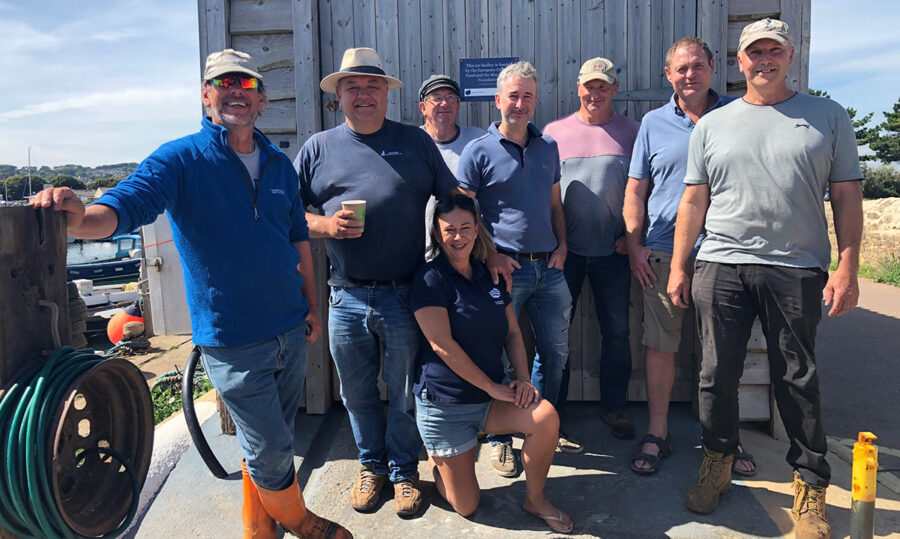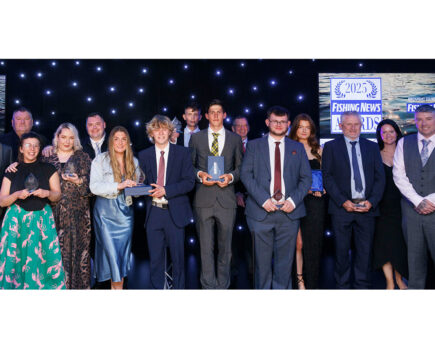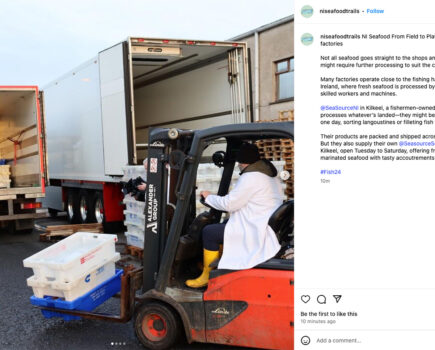A new community interest company, Lyme Bay Fisherman’s CIC, has recently been formed, supported by funding through the UK Fisheries and Seafood Scheme. Here, several founder members of the CIC tell their stories, and its chief executive provides the background to the formation of the group, which she suggests could be a blueprint for other fishing communities
‘From talks to plans to grant applications’: A CIC created by fishermen, for fishermen
Chief executive Mandy Wolfe explains how the CIC got off the ground
For most of my 20 years working in and around the fishing industry, small vessel representation has been the elephant in the room. From Defra to the MMO, and the MCA to Seafish, but particularly across the sector, it has long been understood that large swathes of the inshore fleet have no meaningful representation.
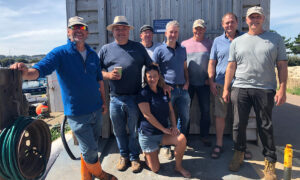
Fishermen from across Lyme Bay have come together to form the new community interest company, including this group pictured at Axmouth. Left to right: John Wallington, Dave Hancock, CEO Mandy Wolfe, Charlie Ziemann, Nathan Cox, Gavin Ziemann, Bob Carless and Karl Hibbert.
That is not to say there is none. Some producer organisations, and specialist organisations like the South Devon & Channel Shellfishermen, do a good job of representing all their members, but on the whole, thousands of owner-operators around the coast simply don’t belong to groups that offer them support, or someone to represent them.
But I have in recent years been encouraged that this gap in representation has been talked about more openly in ports and harbours and on social media. Government organisations are also actively trying to engage better with skippers and owners, with more coastal pop-ups during consultations and workstreams – but the industry must also play its part.
For five years I had worked as the fisheries liaison to Lyme Bay for the Blue Marine Foundation. This put me in weekly contact with a lot of the fishermen across the four ports of Beer, Axmouth, Lyme Regis and West Bay. They gave up their time throughout, and continue to fill my personal knowledge gaps.
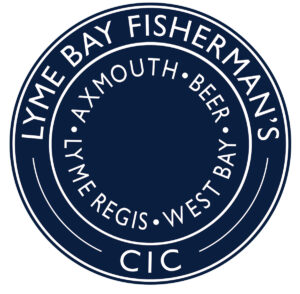
Time and time again I heard about things that were ‘happening to them’. Sometimes fishermen didn’t even know about changes before they happened, let alone engage in designing these policies when they were being developed.
Frustration was commonplace. The pivotal moment for most of us came when senior Defra officials and their team came to visit for a couple of days in 2019. They told me they wanted face-to-face, no-holds-barred discussions, and my fishermen were up for the task! We met in backrooms of pubs and cafés in the ports, and the discussions were lively.
But what planted the nugget was how much the officials got out of it. There were of course things they had heard before, but some individual experiences and issues that fishermen raised had not been cutting through to their level. I picked up from them how vital to good policy this type of information is, but it took a while to work out how we could achieve that on a permanent basis, to get those voices in the room heard by those taking decisions.
Everyone thought it was a great idea to try to form a representative body from across the four ports, and find funding to help staff and advocate for the local fleets. We knew what was needed, but there wasn’t a template for doing it.
Blue Marine Foundation was keen to help support the local fleets to set up their own organisation – by fishermen, for fishermen. We are grateful for its support in this journey, and for allowing me to work with the fishermen to help set this up.
It was really important to me that this organisation was truly representative, and the fishermen felt the same way. Everyone knows how difficult it is to get more than three fishermen in a room at the same time, but when you can, the ideas flow and the passion for this industry is palpable.
So this journey progressed through 2021, with lots of one-to-one conversations with fishermen on quaysides. All four ports have ad hoc fishing organisations, and they too sat and talked through what this new organisation might look like, and what its goals and aspirations should include.
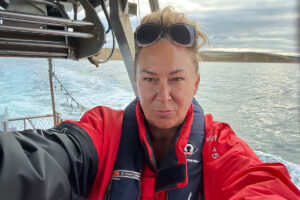
Chief executive Mandy Wolfe: “I strongly believe that this grassroots, bottom-up approach is vital to a successful fishing organisation.”
In January 2022, these amazing pathfinding fishermen convened a workshop to decide everything from the organisation’s name, to who would sit on the board. What ensued was a day of back and forth discussing structure, goals, and the routes to them, and the plan was hatched and honed.
The day-long workshop resulted in a report that was circulated to all who attended for approval, and the real journey then began. From registering the CIC at Companies House to tax and VAT registration, opening bank accounts and preparing bids, it has been full steam ahead.
The new CIC was awarded a grant at the end of 2022 to deliver the vision the fishermen have over the next two years, which will provide a full-time- equivalent employee to run the CIC, get it up and functioning, and begin a number of projects. I am so grateful to the Grants
Team at the MMO for their help and support. We thought that our ideas and application met the fund requirements, but being able to lift the phone along the way and get clear answers was vital to understand a process none of us had worked with before.
For those who follow our path, some advice: put everything down on your lists, leave nothing off, and then work with the MMO to create a successful bid.
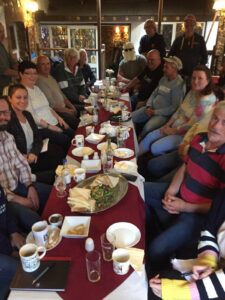
The ‘pivotal’ 2019 meeting between Defra and fishermen that triggered the idea of creating a canopy group representing the four ports.
The Grants Team are there to help and advise, and while not everything we asked for was funded, we then understood why some aspects weren’t, and we discovered things we hadn’t thought of that could be.
I strongly believe that this grassroots, bottom-up approach is vital to a successful fishing organisation, but I fully understand that this may be a daunting task for fishermen around the coast to get off the ground. We hope that our new CIC can secure funding to share the experiences and create a how-to guide for others who want to follow the path we took.
This was a steep learning curve for us. None of us had set up a CIC or used FaSS for this type of project before – even opening bank accounts for a CIC is not as simple as you might think! So we want to share all our documents, from the workshop agenda and output report through to the details of our FaSS bid, so that others can literally cut and paste the things they like and want to do, and not have to go through the hard yards we did.
This co-operative and collaborative working across the small-scale fleet around our coasts is more important now than ever, and anyone who knows our fishermen will not be surprised that they are eager to help others, where possible, to do the same.
Creating a CIC is not going to magically make the problems facing the fishermen of Lyme Bay disappear. It will, however, help to ensure that their voices are heard by fisheries managers of all types, and that this is reflected in future policies.
It’s is my absolute honour to serve the fishermen of Lyme Bay as their first chief executive, and I could not be prouder of their individual and collective efforts to get us to this point. So my final but most personal and hugest thank you is to them – the fishermen who kept the faith, put in the time, and made all of this possible.
Gavin Ziemann: ‘Bonds between fleet and community’
Gavin Ziemann works his 20ft Kingfisher Ventura out of Axmouth. A member of the new CIC, he has been an active member of the Axmouth fishermen’s association for a number of years
“It is an incredibly exciting time for us. We have been talking about getting together with other ports and seeking to get a seat at the table, and getting small-scale fishermen’s views heard more widely, for years – but I am not sure any of us ever thought we would get to where we are now.
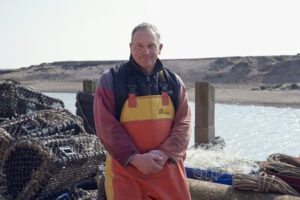
Axmouth fisherman Gavin Ziemann.
“It is a testament to Mandy’s driving force, and all the fishermen coming together from across the four ports, that has made this a reality, and I could not be prouder of everyone’s efforts.
“I am particularly excited to be working on the schools outreach programme. With support from the MMO FaSS fund we are designing and delivering a pilot programme to 25 schools across the region for Key Stage 2 – Years 4 through 6.
“When I was young, I would leave the house at 5.30am and not be home before 7pm. Fishermen would take us kids out for a trip in those days, and let us help with landing, mending and maintenance – but you wouldn’t see this happen due to health and safety nowadays, and that is a shame. It is in part where my love of the sea and fishing came from.
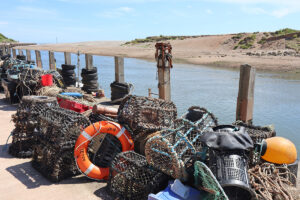
The Axmouth vessel owners were already used to collective working through their local association, successfully introducing a shared ‘lobster hotel’ that has made storage and local sales of live shellfish much more straightforward.
“We are mindful of this, and so we hope that going into schools and teaching young people about the life and work of a fishermen, as well as the amazing species we have in our local waters, will help bridge that knowledge gap that has been widening for many years now.
“The local fishing fleets are important for all our coastal communities, not just because of the food source it provides and the direct jobs, but because of its huge contribution to tourism in our area – but we have to find new and innovative ways to encourage kids off their phones and into the ports, and we hope this schools outreach will help with that.
“Ironically, the lockdowns caused by Covid brought our fishing communities back together like in the old days, with fishermen supporting their isolated communities with a great supply of fresh fish on the quays, and the locals coming out and supporting us when markets were weak and supply chains closed to us.
“The world is back at work now, but it demonstrated that the strong bonds between fleet and community remain, and we need to embrace that – and our schools outreach and community engagement will all help to do that, we hope.”
Marc Newton: ‘A united voice on policy’
Marc Newton, a founder member and director of the CIC, runs Beer Fisheries. His father Jim works their 21ft Cygnus Bess FH 32, and Stephen Andrews skippers their 19ft Cygnus The Lady of Ennis PZ 21, out of Beer
“Our family can trace its fishing heritage back to the 1600s, and it’s great to carry on that tradition.
“If I am honest, throughout my whole life I have known, like most fishermen, that isolated coastal communities and fleets like ours are under threat. That’s not to say that government policy ever starts out to ignore the wants and needs of small-scale fishermen, or to subject them to unintended consequences of sector or geographical displacement – but it happens too often.
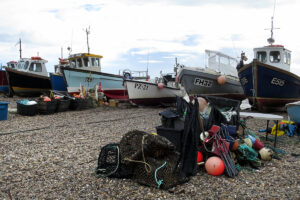
The Beer Fisheries boats Bess and The Lady of Ennis alongside the rest of the beach-launched fleet.
“We in industry have to take some responsibility for this, but with so many consultations and engagements running what seems like relentlessly for the past five years, it’s easy to see how so many small-scale fishermen just don’t bother. It’s overwhelming sometimes, and easier to just keep on with the day job and supporting our families.
“So when Mandy raised the idea of our four ports coming together to represent all the differing views in one organisation, and funding and staffing it – to support not just our fleets, but the communities we live and work in – I knew I had to be a part of it.
“It took some time to bring everyone together, but it’s up and running, and we are now seeing what can happen if ports and fleets can come together.
“We have a strong and vocal membership which drives our workstreams and helps to set the strategy for our chief exec to deliver and our board to oversee. Outputs dictated by the workshop last year are well underway, and we are already looking to scope further projects and workstreams to help promote our catches and get more local fish eaten locally, from hospitality to family dinner tables.
“We have such amazing seafood coming ashore, and it would be great to see more used locally – it helps reduce food miles, and also provides an opportunity for the fishermen to earn more for their catch. In the meantime, the CIC operates a transport service for its members to get the catches to South West auctions and wholesalers. This is a lifeline for our fleets, and takes the risk out of driving your own fish to market after a long day at sea.
“Our schools outreach programme will launch in May, and this along with community engagement events will, I hope, help to restore a good working knowledge of our fleets and catches to our wider communities.
“Finally, we all had a steep learning curve to get to this point, and as soon as we are able to secure funding, we will produce at pace a how-to guide case study to help others crack on and do what we have.
“Wouldn’t it be great if around our coasts more of these CICs could pop up and join together to share best practice of operations and projects, and have a united voice on policy matters?”
Ted Hook: ‘Ports and sectors coming together’
Ted Hook works his 10m Denis Swire trawler Immy PZ 110 out of West Bay and is a founder member of the CIC
“Great Grandad worked on trawlers out of Lowestoft at the herring. I was born in West Wales, and as was the case in those days, I worked my way up through the jobs as a kid. Winkle-picking, then pot- making, and eventually I went to sea at 14 years old, and spent my early career fishing out of Wales.
“After relocating about 15 years ago to the south coast, initially whelking and potting, I made the change to a small trawler. This was a significant investment for me and the family. I therefore have the benefit of experience of different types of fishing and their conflicts with one another, and I think this new CIC is a great platform for us at a local level to work through ideas and concepts with everyone involved – divers, trawlermen, anglers, potters and netters.
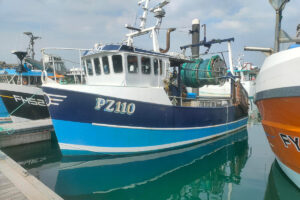
Ted Hook’s Immy PZ 110.
“It is fantastic to see fishermen from across the ports and sectors coming together in this way, and to have the organisation up and running is really going to help us as a region be heard and understood by regulators. No one has all the answers, but for so long all these people weren’t even in the same room. This CIC changes that.
“We are already talking about gear and science trials, and thinking ahead to things we want to pilot. This would be incredibly difficult for a fisherman working alone, but together, and with a chief exec onboard, I really think we have the best shot at trying some things we have long believed may have a positive impact on our operations.
“The outlook for our sector has not been rosy, but for the first time in a long time, I believe that working together as a group, and with government and its agencies, we have a chance to turn that tide.
“This is our opportunity to demonstrate the importance of small-scale fisheries, and most importantly that they are not only compatible, but essential to the heritage and thriving coastal communities we all live in.”
Martin Sutcliffe: ‘Collaboration, compromise and a collective goal’
Martin Sutcliffe worked for the Dorset and East Devon FLAG between 2017 and 2020. This was a funding programme hosted by Dorset Coast Forum, which he continued to work with until last year
“While working for the FLAG, I worked with a lot of fishermen across Lyme Bay. So when Mandy reached out with the idea of them all coming together with the aspiration of setting up a Community Interest Company to represent them all, I was delighted to help with the design and delivery of the initial workshop.
“I have learned over the years that there are no quick routes to getting fishermen engaged. They are hardworking and don’t have a lot of free time, but when you can get a group together and engaged, the feedback and ideas are literally ground-breaking.
“I did a lot of prep work with Mandy and the team to ensure the workshop would cover a whole range of topics – not just governance and arrangements for setting up the CIC, but also what its workstreams and priorities would be.
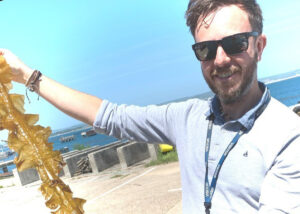
Martin Sutcliffe: “This is one of the best pieces of collaborative working in the fishing industry I have come across.”
“The day of the workshop was fantastic. With so many fishermen in a room, you might expect a lot of back and forth and a whole range of views, and that is what happened. But I was struck with how focused the group was on achieving their collective goal – I saw more collaboration and compromise in that room than I had witnessed before.
“The prep work Mandy had done with one-to-one conversations and meetings with port groups across Lyme Bay ensured that everyone showed up with ideas and knew what was expected of them, which I think was essential to the final outputs.
“I am genuinely proud to have been involved with the fishermen of Lyme Bay, Mandy and the team at Dorset Coast Forum on this work – it is one of the best pieces of collaborative working in the fishing industry I have come across.
“It is great that these pioneering fishermen now have a functioning CIC that is up and running, and are looking to create a toolkit to help others do the same. This will certainly make the process far simpler for those who want to follow. I would encourage more port groups to look around and see who they could form alliances with within their region.”
Three key pieces of advice from Martin Sutcliffe
- Engage early and build trust: Follow Mandy’s path and get those conversations going with individual fishermen and ad hoc groups around the coast at the earliest possible opportunity. It will then become obvious what the common themes are.
- Don’t run before you can walk: Do not underestimate the work that is involved. It takes a lot of time and background work to register a CIC and, once registered, more work to gain funding. It is vital when considering the business plan and projects that you make sure you are mindful of the work that goes with that, and don’t try to do too much, too quickly and overwhelm those who will end up developing the CIC. You can always add more workstreams once the basics of company structures and functions are set up. Setting up a website, for example, may sound quite easy, particularly if a design company is contracted to do it – yet someone in the CIC has to write all the words, source all the pictures going into it, and oversee the design.
- Work with the Grants Team at the MMO or other funders – they are there to help: This will help you filter out the ideas that you will struggle to fund, and keep the group focused on what is achievable. Different funding schemes and deadlines will have an impact on delivery, so make sure that your workshop has the expertise in the room to help guide ideas and identify if there is a pot of money to help deliver the workstreams that fit with your overall aims. Remember, too, that new funding pots become available from time to time, so keep those ideas that didn’t initially make it through your workshop in mind – their time may come in the future.
FaSS: more funding available
Since launching in April 2021, the £30m Fisheries and Seafood Scheme (FaSS) has already awarded over £19m to almost 1,000 projects supporting seafood and maritime businesses.
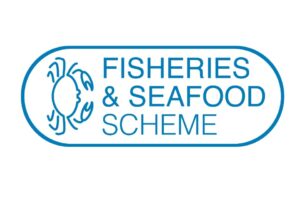
The grant scheme, led by the Marine Management Organisation (MMO), provides funding to support food producers across the catching, processing and aquaculture sectors in England. Through project applications from seafood and marine businesses, charities and other organisations, FaSS has enabled health and safety improvements, developments in the processing and marketing of seafood products, business diversification, and port and harbour improvements.
FaSS can also support the industry by funding projects focused on conservation and restoration of the marine environment, supporting national ambitions to achieve net zero through reducing emissions, and –asinthecaseoftheLymeBay Fisherman’s CIC – supporting co-operative activities.
Michelle Willis, the MMO’s director of finance and resources, said: “Our successful grants programme FaSS helps projects with real potential to boost business resilience and increase sustainability across our world-class fishing industry.
“The Lyme Bay Fisherman’s CIC project is great example of how FaSS can support groups of fishers to co-ordinate their efforts, share best practice and ensure they maximise opportunities through funding, research and networking.
“I wish them every success in achieving their goals and aspirations.”
The scheme is open throughout the year for applications. Projects costing £150,000 or more are considered by a panel. There are two remaining panels for 2023, with submissions due by 31 May and 30 September.
The MMO has a dedicated Grants Team to help the fishing industry understand its options, discuss potential project ideas and assist applicants through the process. It is also looking to set up roadshows to promote the scheme.
For more information, contact the MMO Grants Team by calling: 0208 026 5539 or emailing: FaSS.queries@marinemanagement.org.uk
This story was taken from the latest issue of Fishing News. For more up-to-date and in-depth reports on the UK and Irish commercial fishing sector, subscribe to Fishing News here or buy the latest single issue for just £3.30 here.

